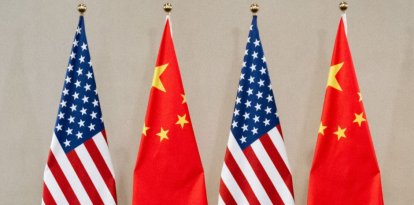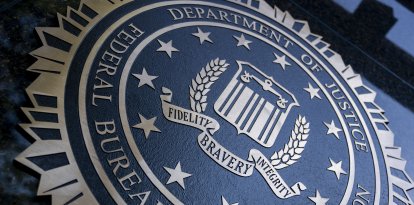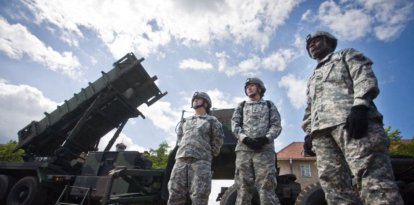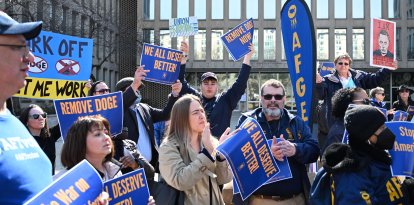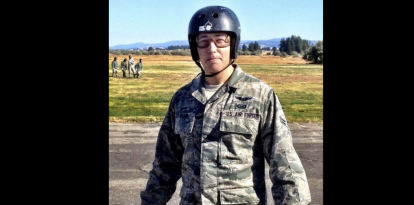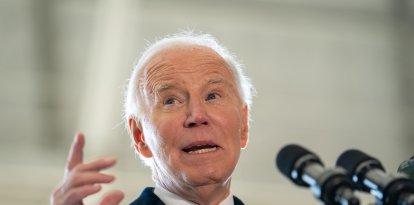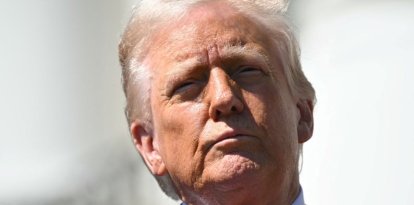A key step in determining Trump's sentence: The former president completes a mandatory interview with a parole officer
The interview, held virtually, was attended by the former president's lawyer, Todd Blanche, and lasted less than thirty minutes.
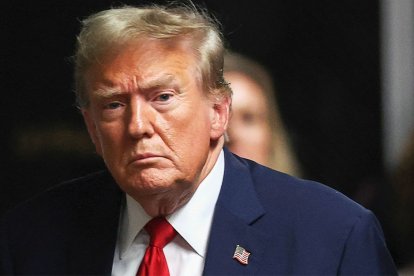
(Mike Segar / POOL / AFP)
Donald Trump concluded in less than half an hour a virtual interview with a probation officer that is part of the pre-sentence process that will be imposed on him after being found guilty of 34 counts of falsifying business records in New York.
The interview, part of a routine procedure, will contribute to the report presented to Judge Juan Merchan, a key element in determining Trump's sentencing, scheduled for July 11.
The former president attended the engagement through a computer videoconference from his residence at Mar-a-Lago in Palm Beach, Florida. His lawyer, Todd Blanche, accompanied him, as confirmed by sources close to the case.
Although details of the encounter have not yet been released, during pre-sentencing interviews, the defendant is often asked about aspects such as his or her conviction, employment, and criminal record, which are relevant information for the judge when determining the appropriate sentence.
Although Trump was not obliged to cooperate, the judge could perceive the lack of collaboration negatively. Trump's legal team also had the opportunity to submit letters of support from friends and family to Judge Merchan, although it is not confirmed whether they chose to do so. Additionally, as part of the process, Trump's legal team is expected to present its sentencing recommendation on Thursday.
Trump campaign spokesman Steven Cheung previously stated that Trump and his team were working to "challenge and defeat" what they call a "lawless" case by the Manhattan district attorney.
The Manhattan District Attorney's Office will also present a memorandum with its sentencing recommendation for Trump. Judge Merchan has the power to impose a sentence ranging from probation to four years in state prison for each charge, accumulating a maximum of 20 years.
Former federal prosecutor Andrew Weissmann warned before the meeting that while there was nothing wrong with Trump not admitting his guilt during the interview and discussing his plans to appeal, it would be counterproductive if the former president criticized jurors, judges or others involved in the judicial process. "If he were to start saying the kinds of things that he has been saying during the trial and after the trial, attacking the jurors, the witnesses, the judge, family members, to foment a false-anti law enforcement sentiment, that’s not going to go that well, to say the least," Weissmann explained before the interview.
Details of the interview are expected to come to light later.
RECOMMENDATION
